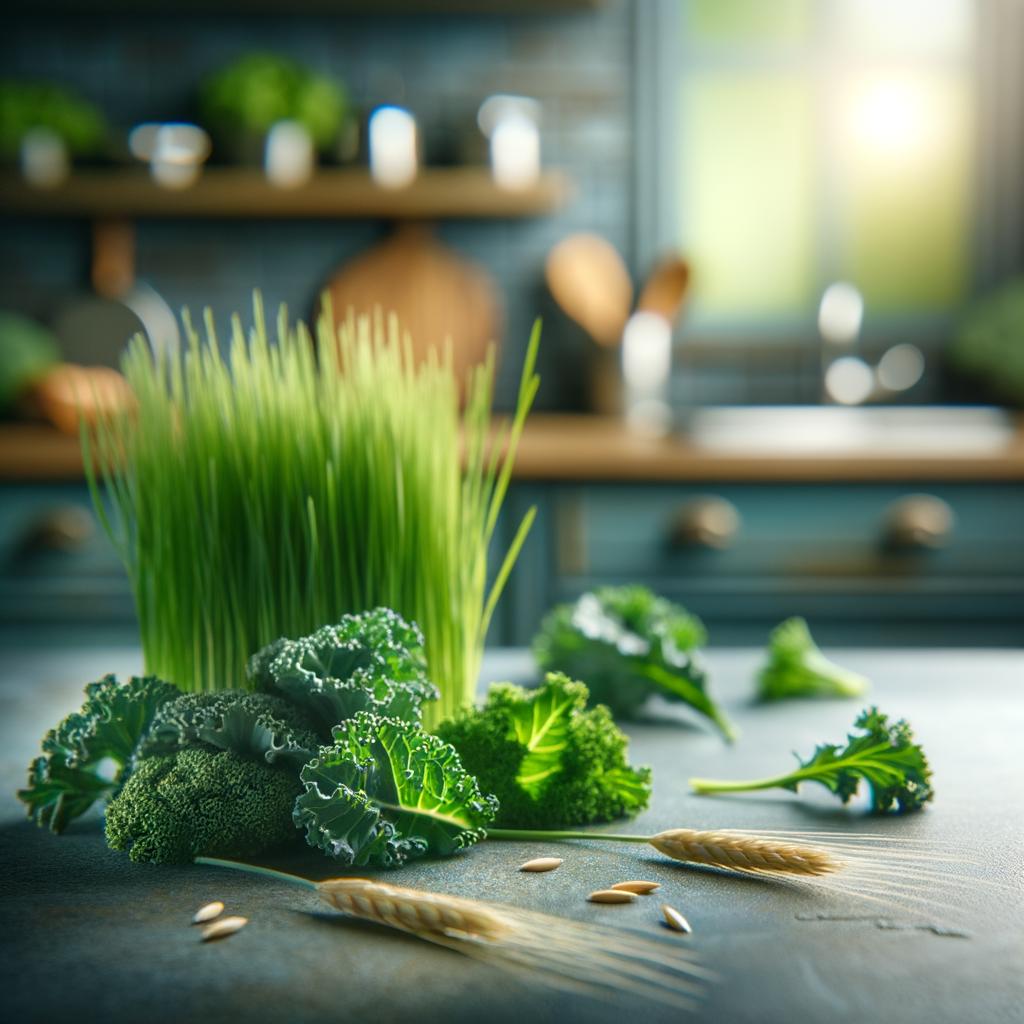Kale or Young Barley Grass

Description
Kale, also known as "the queen of greens," is a leafy green vegetable that belongs to the Brassica family, a group of vegetables including cabbage, collards, and Brussels sprouts. Its leaves, ranging from dark green to purple, are slightly curly with a robust, earthy flavor that becomes sweeter after a frost. The texture of kale varies from the softness of the young leaves to the coarser mature ones. One unique characteristic of kale is its resilience to cooler climates, where it thrives and becomes sweeter, setting it apart from other leafy greens that prefer warmer climates.
Primary Uses
Kale is a culinary chameleon, used in a myriad of dishes across various cuisines. It can be sautéed, baked, blanched, or even consumed raw in salads and smoothies. It's a key component in traditional dishes like the Portuguese 'caldo verde' or the German 'grünkohl'. Beyond its culinary uses, kale also has cultural significance. For example, in Japan, kale is often used in the New Year's Day meal to bring good luck and prosperity.
History
Kale has a rich history dating back to Ancient Rome, where it was a popular vegetable among the Romans. It was also a staple in medieval Europe, where it was one of the few vegetables grown during winter. Its popularity waned with the introduction of other cabbages, but it made a comeback in the 21st century as a 'superfood'. There's an old Scottish story that a beautiful princess could determine her suitors' love by the size of the kale plant they presented to her.
Nutritional Information
Nutritionally, kale is a powerhouse packed with vitamins A, K, C, and B6. It's also a good source of minerals like manganese, calcium, copper, potassium, and magnesium. Its high fiber content aids in digestion and its antioxidant properties are believed to help prevent certain types of cancer. When compared to spinach, another leafy green, kale contains more than twice the amount of vitamin C, making it a superior choice for boosting immunity.
In every bite of kale, you're not just consuming a vegetable; you're participating in a tradition that spans centuries and continents. It's a testament to kale's enduring appeal and nutritional prowess that it continues to be a beloved ingredient in kitchens worldwide.

